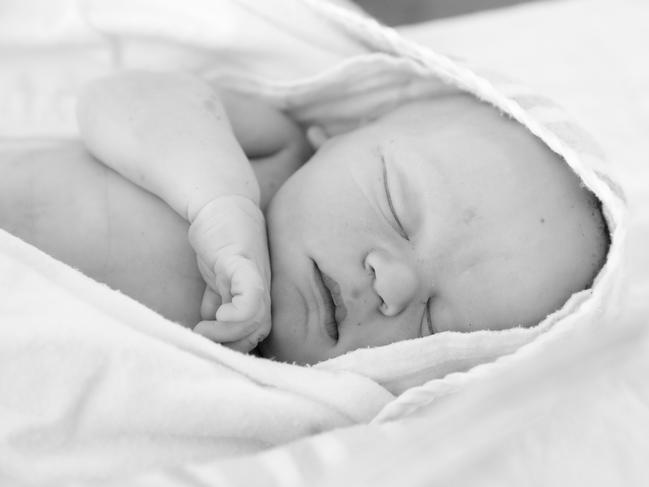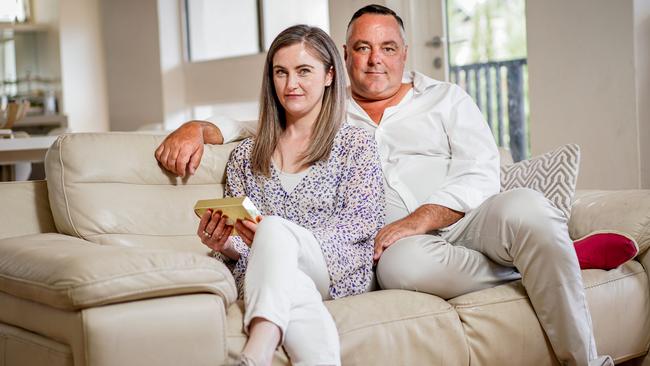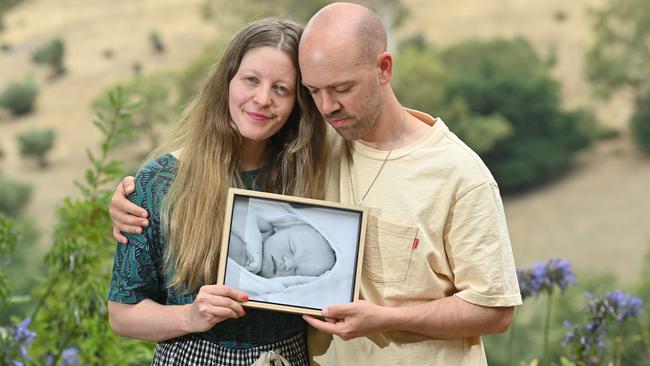Two Adelaide women faced with late-term abortions share the hardest choice of their lives
Two Adelaide couples faced with late-term abortions share their heart-wrenching stories, as debate rages on controversial abortion reforms.
Lifestyle
Don't miss out on the headlines from Lifestyle. Followed categories will be added to My News.
Confronted with abortion late in much-wanted pregnancies, two Adelaide women today share their very different experiences in a bid to humanise the abortion debate that is raging in South Australia.
Late-term abortion is the centre of considerable contention in this state as MPs – within days – start vigorously debating in Parliament their support for or opposition to history-making abortion law reform.
Late-term abortion has such deep cultural stigma that very few reveal their choices for fear of being shamed and judged, and so, many of us are unaware of its occurrence, and in turn, cannot understand why or how it happens.
Annabel Bower and Eleanor Day are braving that judgment today by sharing their stories.
At 20 weeks pregnant, both were told by doctors that their babies would not survive to birth or would die moments after being born.
Medical termination was an option identified in both cases. Mrs Bower’s pregnancy was medically terminated at 23 weeks and Mrs Day’s pregnancy continued to 37 weeks.
Both women gave birth to sons. Miles Bower was born still and Quincy Lazarus Day took his last breath two hours after birth.
Both babies were deeply loved, honoured and are remembered by their families every day.

I felt compelled to hold him for as long as I could
Annabel Bower’s fourth pregnancy had been a textbook experience – so bringing her two young sons to a routine prenatal scan seemed like an exciting way for them to meet their brother, who was due to join the family in a few months’ time.
But the scan did not go to plan.
“I could tell something was wrong – they were taking forever and then they asked if the boys would go and watch TV in the waiting room,” Mrs Bower, 40, said.
At 20 weeks pregnant, Mrs Bower and her husband Josh Bower discovered their baby had “severe” hydrocephalus – a build-up of fluid in the brain that can cause brain damage. A more detailed scan and an amniocentesis (a needle extracting fluid from the amniotic sac surrounding the foetus) were taken and, two weeks later, results confirmed their baby had a blood clot and haemorrhaging in the brain.
They were told their pregnancy, if continued, could be fatal to Mrs Bower – as a result of uterine rupture – and to their baby boy.
The Bowers had three children aged under nine at the time.

“All of our specialists made it clear that to medically interrupt the pregnancy was the best outcome for the baby and mother,” said Mrs Bower, a food stylist from Adelaide’s eastern suburbs.
“It was a complete shock to find out there was something so wrong that far into the pregnancy that had gone so well up until that point – we felt blindsided.
“We had started planning the nursery, we were thinking about what to do with the baby car seats, and visualising what family life would be like with him in it.”
The night before the medical termination, Mrs Bower packed the blankets she used to wrap her sons as babies and some pretty, blue clothes.
Miles Bower was born still at 23 weeks in December 2018 – just after Christmas – at the Women’s and Children’s Hospital following an induced labour that lasted five hours.
“I was devastated – it seemed so unfair that he never had a chance,” Mrs Bower said.
The Bowers spent precious time with their son in hospital before saying their final goodbyes.
“I felt compelled to hold him for as long as I could so we could create our own memories – I wanted him to have a legacy and remember what he looked and felt like – I didn’t want his life to be forgotten,” Mrs Bower said
The family celebrate Miles’s birth date each year, have set up a foundation in his name to help parents bereaved by the loss of a baby, and Mrs Bower has written a book called Miles Apart.
More than two years on, Mr and Mrs Bower said: “It was a decision we made out of love for Miles as his life would have been one of great suffering had he survived at all.
“We do not regret our decision but, naturally, like all parents, we would never have anticipated having to face such a devastating diagnosis during pregnancy or encounter the choice we had to make.”
His life was as valuable as his two older brothers
Eleanor Day, heavily pregnant with her third son, had a mental script prepared when unwitting friends, work colleagues and customers commented on the impending joy of her baby’s arrival.
Mrs Day’s unborn son was very unlikely to survive birth for more than a few hours.
“I had to be gracious at all times with my responses,” Mrs Day said of the innocent wellwishers.
“And in explaining why we were choosing to give our baby life even if it were for a small window of time.”
Medical advice to terminate the pregnancy at 22 weeks gestation was not an option for the 32-year-old retail worker and her husband John Day, based on their personal beliefs and faith.
“We collectively decided that his life was as valuable as his two older brothers even if it were for a few minutes,” Mrs Day said.
A prenatal scan at 20 weeks had detected their baby boy was developing without a bladder and kidneys.

Further scans and tests confirmed bilateral renal genesis – a foetal abnormality affecting one in 10,000 babies.
“We were devastated,” Mr Day, 32, said.
“Being told at every stage that our son wasn’t going to be viable beyond the womb, and if so, that he would only live potentially for minutes or hours – it was hard to process and to grieve.”
He said medical specialists said the option taken by most couples faced with the same prognosis was termination.
Throughout the pregnancy, the Adelaide Hills parents held on to the small possibility their baby might defy the odds.
“We were very aware of the medical diagnosis but held out hope for a different outcome,” Mrs Day said.
Quincy Lazarus Day was born at 37.5 weeks in September 2019 at the Women’s and Children’s Hospital. “He was breathing and calm,” Mrs Day said.
Mr Day cut the umbilical cord.
Quincy died two hours later surrounded by his parents, his brothers Moses and Francisco (aged three and 18 months at the time), his grandparents, uncles, and aunts.
Mrs Day said the palliative care team was present to ensure Quincy was at all times comfortable and received medical care if required. She said it was not needed.
“There is a tremendous sense of peace in knowing that nature took its course and there are no question marks or what ifs,” Mr Day said.
A week after Quincy’s death, 200 family and friends said goodbye to him at a memorial service at the family’s church.
A quince tree has been planted in the family’s garden and Quincy’s first birthday was celebrated last year with a family day of bowling, drinking bubble tea and eating dumplings and cake.
“We think about him every day,” Mr Day said. “He remains a big part of our lives.”
Mrs Day said: “I feel an overwhelming sense of gratitude that we were able to spend the time we had with him and that we have been blessed with three beautiful boys.”





